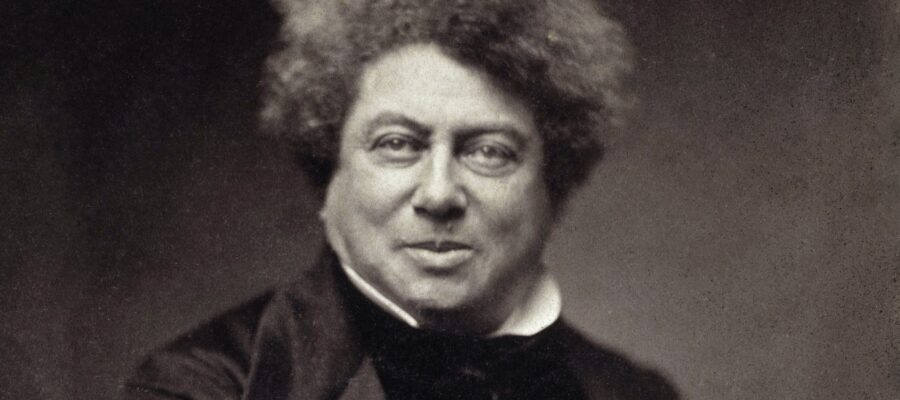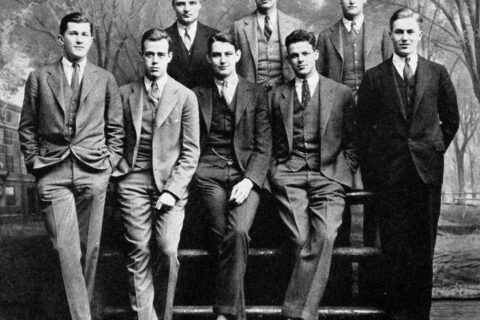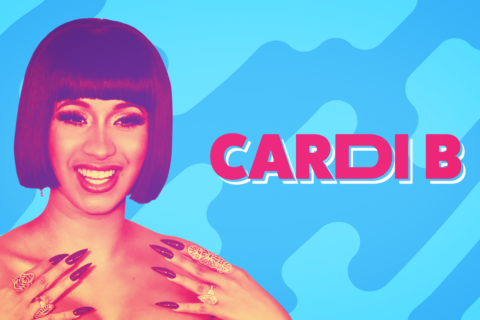As others have pointed out, neither civic nationalism nor ethnonationalism work well on their own. The best societies have both. Any attempt to answer which matters more is largely asking the wrong question. Civic nationalism only works if the polity has a strong culture and usually a dominant ethnic group. Bavarians are genetically close to Austrians, but they have a unique culture and history which leaves them as a people apart. Likewise, the Scottish and Irish have many similarities, as do the Scottish and English, but these are three distinct peoples (though they may not be too distinct genetically).
With the arguable exception of Singapore, a city-state which defies many normal rules, civic nationalism does not work without ethnonationalism. America has tried to embrace civic nationalism for some time, with Theodore Roosevelt being one of its champions, evidenced by his comments about hyphenated Americans. Regardless of your opinion on Theodore Roosevelt, he was correct that embracing the hyphenation leads to a loss of unity. Today, we can see many “hyphenated Americans” embracing their hyphens over America. We should ask why this is the case.
There are two main examples that come to mind when thinking about people who would be “hyphenated” in their culture: Chief John Ross (1790- 1866) and Alexandre Dumas (1802-1870). These men were hugely influential in the same period, which makes them even more valuable to compare.
Chief John Ross was a Cherokee chief and has been called the Moses of his people. He was a chief opponent of Andrew Jackson during his presidency. Ross was only 1/8 Cherokee by blood. His genealogy is this: his great-grandmother married William Shorey, a Scottish interpreter, their daughter married John McDonald, a Scottish trader, and their daughter married Daniel Ross, who was also a Scottish trader. This means that John Ross was 7/8 Scottish and 1/8 Cherokee. However, the Cherokee were matrilineal, as many cultures at that level of technological development tend to be. Conflicting accounts exist regarding whether he grew up thinking of himself primarily as a Native or American. He spoke Cherokee poorly growing up, but he still represented his tribe to the U.S. government and participated in tribal events. His Scottish father ensured he received a classical education, but it was alongside many other mixed-race children.
Ross did work both for the American government and for the Cherokee. In 1811, he worked as a U.S. Indian Agent. He later led Cherokee troops, under General Andrew Jackson, in the War of 1812. He then had a series of appointments within the Cherokee tribe and led the Cherokee during the Trail of Tears. He helped transition the Cherokee tribe into the Cherokee Nation, becoming its chief for the remainder of his life.
People often say two things about Alexandre Dumas: he wrote some of the most quintessential French novels and he was a black man. Alexander Dumas is championed as this prime example of a person from an outgroup who “assimilates” and makes the group better by his contributions, supporting the notion of civic nationalism divorced from ethnicity. The argument essentially then goes to “if a black man can be quintessentially French, why can’t a black person or a Hispanic be just as [Southern, American, English, etc.] as you or me?” Well, this argument has a couple of major flaws.
To understand Dumas, you need to know that his grandfather was the Marquis Alexandre Antoine Davy de la Pailleterie (this is a title roughly a step above an earl or count). He impregnated a black slave in Saint-Domingue (Haiti) and the slave gave birth to Thomas-Alexandre Dumas in 1762. His lover (it is unclear if they were married) died 10 years later. The Marquis and his son moved to France 4 years after her death. The Marquis pulled strings to get his son into a military academy. The boy joined the military at the perfect time for a man like him to rise through the ranks: the Revolutionary and Napoleonic periods. He married a white Frenchwoman, who gave birth to the writer Alexandre Dumas 3.5 years before Thomas died.
I can find no good contemporaneous data because the Revolutionary government made it illegal to collect racial data, but even in 2008 there were no more than 5 million black people in France and roughly 4/5 of them were immigrants, so it’s a safe assumption that there were few blacks in France in Dumas’ time. It is like that Thomas, upon moving to France, and Alexandre, after his father’s death, rarely, if ever, interacted with another dark-skinned person. So, we have a guy who is 87.5% Scottish who is seen as an almost messianic Indian and a quadroon who acts like the epitome of a Frenchman.
Is the takeaway that blood is meaningless, magic dirt is real, and race is a social construct? No. For magic dirt, we know it’s false because if it were true, Americans and Australians would be living like the native people they found on these continents, instead of living much like their European cousins.
Had John Ross been 100% Scottish or Dumas 100% African, they would not have been able to assimilate into the cultures they sought to join. However, their experiences do demonstrate that race isn’t a mechanical thing. It is not so simple as to say, “You are X percent Y, therefore you are Y.”
All of this does beg the question on how these men would identify today. If Ross were born today, would it be likely he would embrace his Cherokee side? Certainly, he’d mark himself as Cherokee when applying for scholarships, but how would he truly think of himself? Would it be likely he would embrace his Scottish side so he could get a British passport on top of his American one? Would he embrace some other identity altogether? If Alexandre Dumas or his father were to grow up in France today, is it more likely they would write flowery prose, join the military, or join a minority gang and cause trouble?
The issue seems to be identity, which is itself nebulous. This is partly why mixing causes such issues: even once it’s diluted enough where it would logically be “bred out,” the individual may still identify with that other identity.
There is much debate on what percentage a person should be, or even if it should be based on percentage at all, provided there is a clear hereditary link to the culture and an affinity for it (this is largely still what many Native American tribes still do today). The stark contrast between Dumas and Ross demonstrate that the answer is not something as simple or mechanical as blood quantum. These case studies are good evidence that yes, people who are mixed may adopt the culture they have the least or most blood tie to, so basing racial politics purely on a percentage ethnicity doesn’t make sense. While a minimum threshold likely is necessary for stability, numerous other factors play into one’s identity and in determining in what society a person belongs.
A Southern man trying to make a good Southern plan.
Deo vindice!






yes, great …a necessary understanding… However, what is the strategy you are going to use to build back the agrian political economy and a family centered society not based around “antiquated farm equipment”?
To understand what I’m asking, read Michael Cushman’s book “Our Southern Nation” and his discussion on how the Southern societies of Dixie were established and based around the “logic” necessary for sugar cane plantation and production, and also deriving from our classical Greek and Roman political and philosophical inheritance in the appearance and social form of the American South; that became the upper-most arm of a multinational plantation-based society centered around the West Indies and stretching southward to Brazil, aka “the Golden Circle”. How the “logic” of Sugar cane production created the distinctive cultural, religious and political traits that have become a part of what makes Southerners a particular people in the ethnic sense.
How do we go forward as a distinct South ethno-nation’s who no longer are involved in sugar production ((except as small portion of Florida corporate sugar production) nor much else in “cash crop” production. How much is “free-trade”, “mercantilism” and usury at the base of that old Southern multinational plantation-based society system of which Dixie was a portion?
Our people having embracing its own classical inheritance (Greek and Roman), now being expunged from our consciousness via the propaganda schools of globalist Empire, and our inherited political visions which have been passed down within the Southern tradition, contemporary Southern nationalism must return perhaps to it’s classical inheritance and politcal philosophy (see Plato and Logos/Dharma, aka cosmic and natural law) to escape the current globalist religio-political-economy monocultural trap…
Crescent and Star (See Palmetto State flag and link below) as discussed in Cushman’s book:: The design dates back to the 4th century BC, and was continuously used throughout history. The meaning seems to have been lost. It had nothing to do with religion. It was simply the concept of creating a Golden Age.. …
CONFEDERATE FIRST NATIONAL FLAG, RARE CRESCENT STAR FORMATION, FEBRUARY-APRIL 1861 :: http://p2.la-img.com/397/67269/34223050_1_l.jpg
https://ia800203.us.archive.org/21/items/RebelYell20160311108SouthernFutureMichaelCushman/Rebel-Yell-20160311-108-Southern-Future-Michael-Cushman.mp3
https://www.armstrongeconomics.com/uncategorized/the-gold-age-symbol-from-ancient-times-today/
https://www.armstrongeconomics.com/uncategorized/the-star-crescent-symbol-goes-back-even-further/
As the Italian professor Raimondo Luraghi pointed out in his book
“ The rise and fall of the Plantation South”, https://archive.org/details/risefallofplanta0000lura ,
that the classical traditional seigneurial system of civilization that the historic Southern Nation ascribed too preceded the use of, and was not dependent on the use of “antiquated farm equipment”. However, feudalism is no panacea either nor usury capitalism and “mercantilism” unless you are bent on building multicultural empire again …
again what is the Southern Nationalists strategy to forge the Ethnic Model for a sovereign agrarian traditional family centered non-serf non-slavey Dixie ?
I agree with the point you are making in this article, but let me provide one caveat:
Blood quantum assessed via DNA tests (Let’s keep in mind that DNA tech is rapidly advancing and the tests will get even better than they are now.) is something that can be verified objectively and standardized, just like IQ tests or SAT scores. Anybody can pay lip service to this or that today and be the first to throw stones tomorrow. People lie about their convictions all the time and have “conversions” as soon as convenient. Flattering talk is cheap, cheap, cheap and is as shallow and ephemeral as anything can possibly be. But nobody can game a DNA test, an IQ test or an SAT score (at least not by very many points). These kinds of tests are where the rubber meets the road and the BS stops.
Again, I do agree with the point of the article; we should be more holistic in our assessment of who we consider our own. I consider race, religion and language (or dialect) to be the trifecta of defining an ethnic group (Some will say shared history but it is impossible for a race not to have a shared history.), but then there is self identification (Uh-oh, I can already hear the hyphenated Dixians!) and loyalty to consider as well, so even my pet trifecta would not be good enough. And Religion can be faked or converted and a language acquired. And how can you verify men’s loyalty on a mass scale? It can take a lifetime to prove the loyalty of a single friend or a mate.
Race (as determined by DNA) is the one thing that is 100% reliably heritable and the one thing (unless you want to screen by IQ or height or eye color or melanocytes per square inch of skin) that can be measured with a standardized test.
Two Christians beget Christians most of the time.
Two loyal patriots beget loyal patriots most of the time.
Two racial Dixians beget racial Dixians EVERY time.
Ok, one more thing:
You know what else they say about Dumas?
They say he read most of the works he “wrote”.
https://en.m.wikipedia.org/wiki/Auguste_Maquet
Thanks for the article.
I enjoyed reading Michael Cushman’s views on things. Is anyone aware if he’s on social media these days?